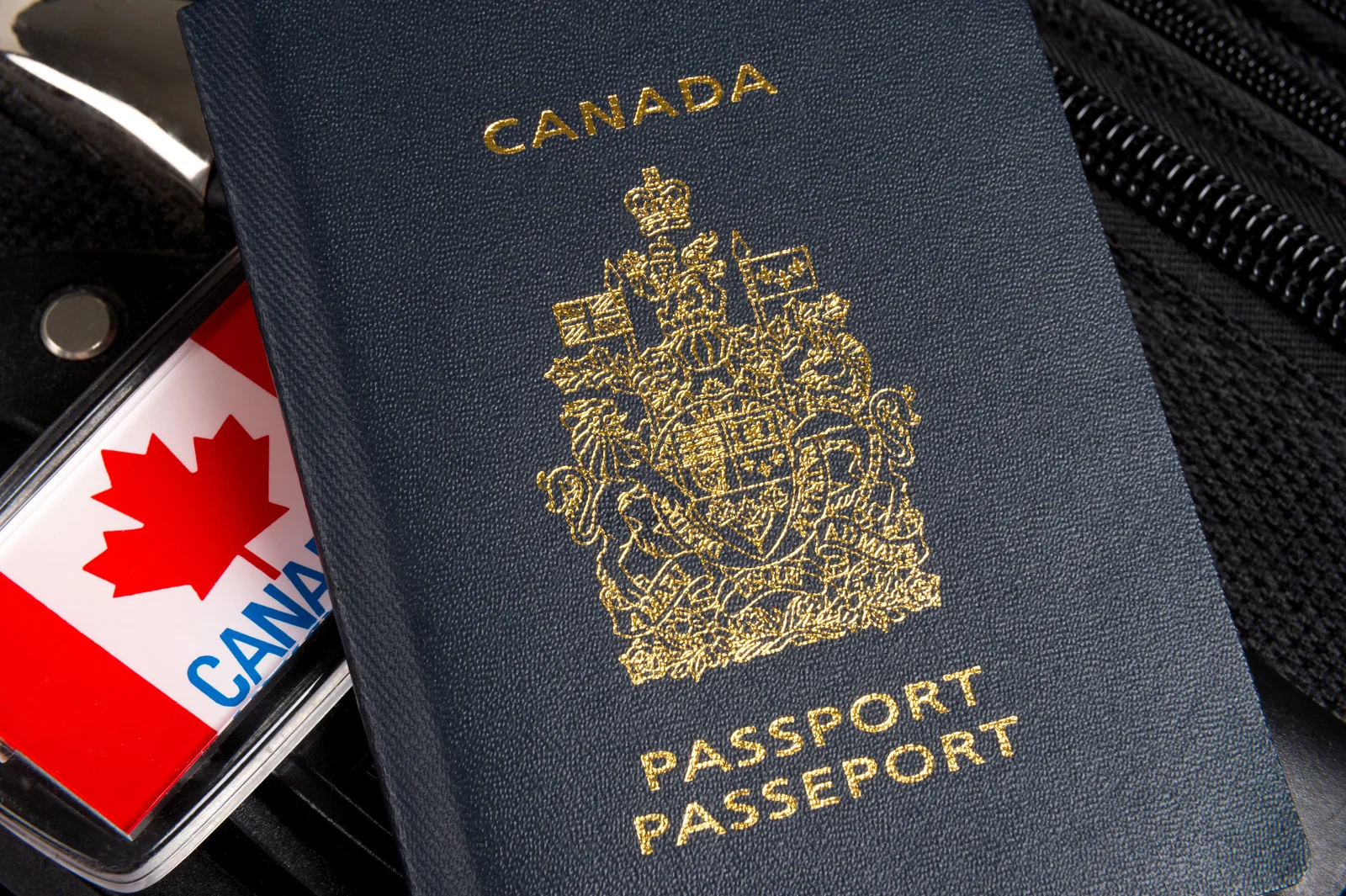
Citizenship
Why Choose Canadian Citizenship?
Becoming a Canadian citizen offers a multitude of advantages that can significantly enhance your quality of life and provide a sense of belonging in one of the world's most diverse and welcoming countries. Here are some of the key benefits of obtaining Canadian citizenship:
1. Right to Vote and Political Participation
As a Canadian citizen, you gain the right to vote in federal, provincial, and municipal elections, allowing you to actively participate in shaping the future of the country. You can also run for political office and contribute directly to the governance of Canada.
2. Canadian Passport
A Canadian passport is one of the most powerful travel documents in the world, granting you visa-free or visa-on-arrival access to numerous countries. It also provides you with consular support and protection from Canadian embassies and consulates while traveling abroad.
3. Employment Opportunities
Canadian citizenship opens up a broader range of job opportunities, including positions that require security clearance and government jobs that are exclusively available to citizens. This can enhance your career prospects and job stability.
4. Social Benefits and Healthcare
As a Canadian citizen, you are entitled to the full range of social benefits, including public healthcare, social security, and education. These services are designed to support your well-being and contribute to a high quality of life.
5. Permanent Residency Security
Citizenship provides the ultimate security of residence, eliminating the need to renew your status or meet residency requirements to maintain your right to live in Canada. This ensures that you and your family can stay in Canada indefinitely without any legal uncertainties.
6. Family Sponsorship
Canadian citizens have the ability to sponsor family members to join them in Canada, helping to reunite families and build a stronger, more connected community.
7. Multicultural Environment
Canada is known for its multiculturalism and respect for diversity. As a citizen, you can fully participate in this inclusive society, celebrating and preserving your cultural heritage while embracing new experiences and traditions.
8. Children’s Citizenship
Children born to Canadian citizens automatically acquire citizenship, granting them the benefits and opportunities of being Canadian from birth. This can greatly benefit your family’s future generations.
These advantages make Canadian citizenship a valuable and desirable status, offering both practical benefits and a profound sense of belonging to a country renowned for its inclusivity, stability, and quality of life. If you’re ready to embark on this rewarding journey, we’re here to guide you every step of the way.

Let's get into a detailed guide where you can find everything that you should be aware of before filing a Canadian Citizenship application, one of the long term goal for many.
Lets see who all are eligible to apply,
The first and the foremost requirement is a Permanent Residence status in Canada. Being a permanent resident, you must refrain from:
- be investigated for fraud or immigration issues
- be requested to depart Canada by Canadian authorities (removal order)
- possess unmet requirements pertaining to your permanent residence status, such as: medical examination
A current PR card is not required in order to apply for citizenship. With a PR card that has expired, you can apply.
You must have resided in Canada for three of the previous five years. That means you must have spent at least 1,095 days in Canada during the five years prior to the date on which you sign your application, along with any applicable minors.
You should have filed taxes if necessary. During the five years before the application date, you might need to submit taxes in Canada for at least three of those years.
Proof of your language proficiency, If you sign your application between the ages of 18 and 54. You will need to provide proof of your sufficient command of either French or English. These hearing and speaking abilities match level 4 of the Canadian Language Benchmarks (CLB) for English, or Benchmarks de compétence linguistique canadien (NCLC) for French They accept a variety of diplomas, certifications, and tests as evidence of your language proficiency.
Getting passed to a citizenship test. You are required to take the citizenship test if, on the day you sign your application, you are between the ages of 18 and 54. Questions on the exam will focus on the obligations and privileges of citizens in Canada. The geography, economy, government, laws, and symbols of Canada. Once your application is received, you will receive an invitation to take the test.
Taking the citizenship oath. The oath of citizenship must be taken if you are at least 14 years old and your application is accepted.
Canadian Citizenship Application Process
Applying for Canadian citizenship involves several steps, each crucial for ensuring your application is processed smoothly. Here’s a detailed overview of the process:
Verify Eligibility:
- Permanent Residency: Ensure you are a permanent resident of Canada.
- Residency Requirement: Confirm that you have met the residency requirement of 1,095 days of physical presence in Canada within the last 5 years.
- Language Proficiency: Check that you meet the language proficiency requirements if you are between 18 and 54 years old.
- Knowledge of Canada: Be prepared to take a knowledge test if you are in the required age group.
- Tax Filing: Ensure you have filed taxes as required.
Gather Required Documents:
- Proof of Identity: Collect documents such as your passport, permanent resident card, and other identity proof.
- Proof of Residency: Gather documents that prove your physical presence in Canada, such as rental agreements, employment records, and utility bills.
- Language Proof: Obtain proof of language proficiency if applicable, such as language test results.
- Tax Documents: Ensure you have tax documents for the required years.
Complete the Application Form:
- Application Package: Download the Canadian citizenship application package from the Immigration, Refugees and Citizenship Canada (IRCC) website.
- Form Completion: Fill out the form accurately, including personal details, residency history, and other required information.
Pay the Application Fee:
- Fee Payment: Pay the non-refundable application fee. The fee varies depending on the age of the applicant. Payment can be made online through the IRCC website.
Submit the Application:
- Document Submission: Include all required documents and the completed application form. Ensure that all documents are copies unless originals are requested.
- Mailing the Application: Send your application to the address provided in the application guide. Use a reliable courier service for tracking.
Application Processing:
- Acknowledgment: You will receive an acknowledgment from IRCC confirming receipt of your application.
- Background Check: Your application will undergo a background check, including a review of your criminal record, if applicable.
- Citizenship Test: If you are between 18 and 54 years old, you will be scheduled to take a written test on Canadian history, values, and institutions.
Attend an Interview (if required):
- Interview: You may be required to attend an interview with a citizenship official to discuss your application and demonstrate your knowledge of Canada.
Wait for a Decision:
- Decision: IRCC will make a decision based on your application, test results, and interview. You will be informed of the decision by mail.
Dual citizens
Even if your Canadian citizenship is acknowledged, you should be aware of the conditions and implications of traveling or residing outside of Canada while holding the citizenship of another country or nations.
You can maintain your Canadian citizenship while holding several citizenships in Canada. Not all nations, though, permit this.
Here are several instances in which you may hold another citizenship:
- You have applied formally for citizenship in another nation
- You were born abroad
- One or more of your parents were born abroad
- You are a citizen of another country.
It's possible that you are unaware that you are a citizen of another nation. For instance, even though you were born in Canada, if at least one of your parents is a citizen of another nation, that nation might consider you to be its own citizen as well and might not acknowledge your Canadian citizenship.
Before leaving Canada to travel to another country where you also hold citizenship, it's crucial to:
- Understand and meet the requirements for dual citizenship in that country.
- Contact the country's embassy or consulate in Canada for information on laws and regulations related to dual citizenship.
- Consult Travel Advice and Advisories for specific information about that country, including details on dual citizenship.
It's important to determine if you have other citizenships before traveling outside of Canada, as you may need to adhere to certain regulations or face restrictions.
While you're away:
- Different entry and exit rules may apply to you if you hold citizenship in another country, even if your Canadian citizenship is recognized there. These requirements may not apply to other Canadian travelers without dual citizenship.
Examples of laws and regulations you may encounter when traveling to or living in a country where you hold citizenship include:
- Needing a passport issued by that country to enter and possibly exit.
- Requiring an exit visa on your passport to leave.
- Registering your Canadian citizenship upon entry or while you're there.
- Facing an exit ban that could prevent you from leaving, possibly due to investigations into you, your family, or your employer, or related to criminal and civil matters, including business disputes.
- Complying with laws that may require parental permission to exit, depending on your age, gender, or marital status.
- Registering for military service, which could be imposed immediately upon arrival or when attempting to leave.
- Paying taxes as any other citizen of that country.
- Registering your child with the country, even if the child was born in Canada.
Additionally, consider the laws and regulations when traveling to countries where you do not hold citizenship. For example, if your Canadian passport indicates you were born outside Canada, some countries may have specific entry requirements, and in some cases, you may not be able to enter.
Citizenship for Minors
There are two types of citizenship applications for minors: minor 5(2) and minor 5(1). It's important to understand them and select the appropriate application based on your specific circumstances.
The differences between minor 5(2) and minor 5(1) applications for Canadian citizenship are as follows:
- Minor 5(2)
- This application is for minors (individuals under 18 years old) who have at least one parent who is a Canadian citizen.
- The minor must be a permanent resident of Canada.
- The parent(s) must apply on behalf of the minor, and the minor does not need to meet the residency requirement (physical presence).
- Minor 5(1)
- This application is for minors (individuals under 18 years old) who do not have a Canadian citizen parent but have a parent who is applying for Canadian citizenship at the same time.
- The minor must be a permanent resident of Canada.
- The minor must meet the residency requirement (physical presence) of at least 1,095 days (3 years) in Canada during the 5 years immediately before the date of application.

Once you become a new citizen following the citizenship ceremony, you will be receiving
- A citizenship certificate
- A valid Canadian passport
- The right and responsibility to vote
- Get free entry to all Parks in Canada for a whole year. National parks, national historic sites, and national marine conservation areas fall under this category.
Marriage to a Canadian does not mean that you automatically gain citizenship. Spouses of Canadian citizens are required to fulfil all of the aforementioned standards without exception
Rights and Responsibilities of Canadian Citizens
Rights of Canadian Citizens
1. Fundamental Freedoms:
- Freedom of conscience and religion.
- Freedom of thought, belief, opinion, and expression, including freedom of the press.
- Freedom of peaceful assembly.
- Freedom of association.
2. Democratic Rights:
- The right to vote in federal and provincial/territorial elections.
- The right to run for elected office.
- The right to have regular elections (at least every five years).
3. Mobility Rights:
- The right to enter and leave Canada freely.
- The right to move to and take up residence in any province or territory.
- The right to pursue a livelihood in any province or territory.
4. Legal Rights:
- The right to life, liberty, and security of the person.
- The right to a fair trial.
- The right to be presumed innocent until proven guilty.
- The right to not be subjected to cruel and unusual treatment or punishment.
5. Equality Rights:
- The right to equal protection and benefit of the law without discrimination based on race, national or ethnic origin, color, religion, sex, age, or mental or physical disability.
6. Language Rights:
- The right to use either English or French in communication with the federal government and in federal courts.
- The right to receive certain services in English or French from the federal government.
7. Minority Language Education Rights:
- The right to have children educated in their first language (English or French) in areas where there are sufficient numbers of speakers.
Responsibilities of Canadian Citizens:
1. Obeying the Law:
- Respect and follow the laws of Canada, including federal, provincial/territorial, and municipal laws.
2. Taking Responsibility for Oneself and One's Family:
- Strive to be self-sufficient and support one’s family through work and personal effort.
3. Serving on a Jury:
- Participate in jury duty when called upon, as an essential component of the justice system.
4. Voting in Elections:
- Exercise the right to vote and participate in democratic processes at the federal, provincial/territorial, and municipal levels.
5. Helping Others in the Community:
- Engage in community service and volunteer work to support and strengthen the community.
6. Protecting and Enjoying Our Heritage and Environment:
- Conserve and respect Canada’s natural, cultural, and historical heritage.
- Take actions to protect the environment for future generations.

Check processing times
The duration for processing a citizenship application can differ based on the submission date and the complexity of the application. To calculate the typical processing time for an application, you can access the dedicated webpage provided by IRCC.
Scorpius Immigration
